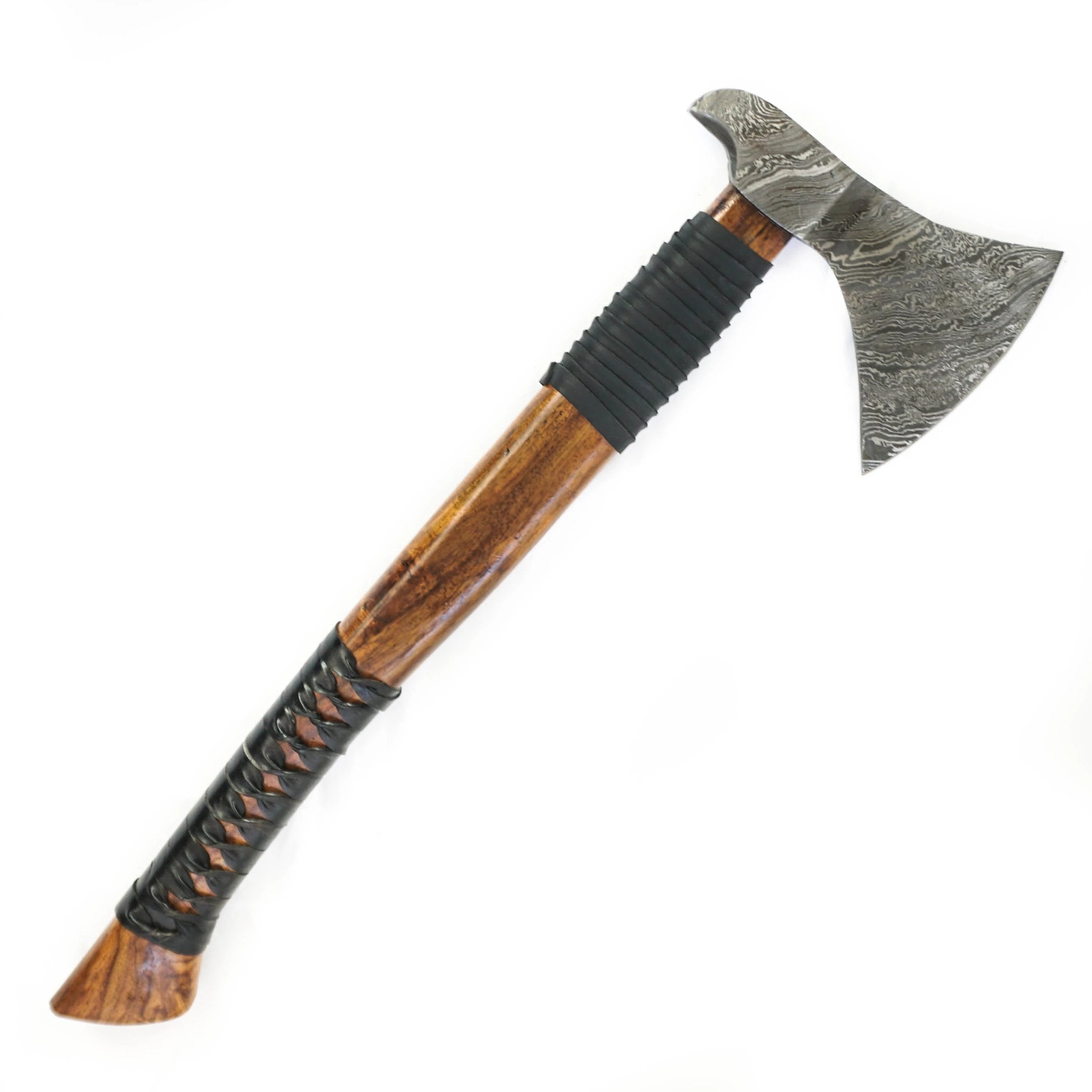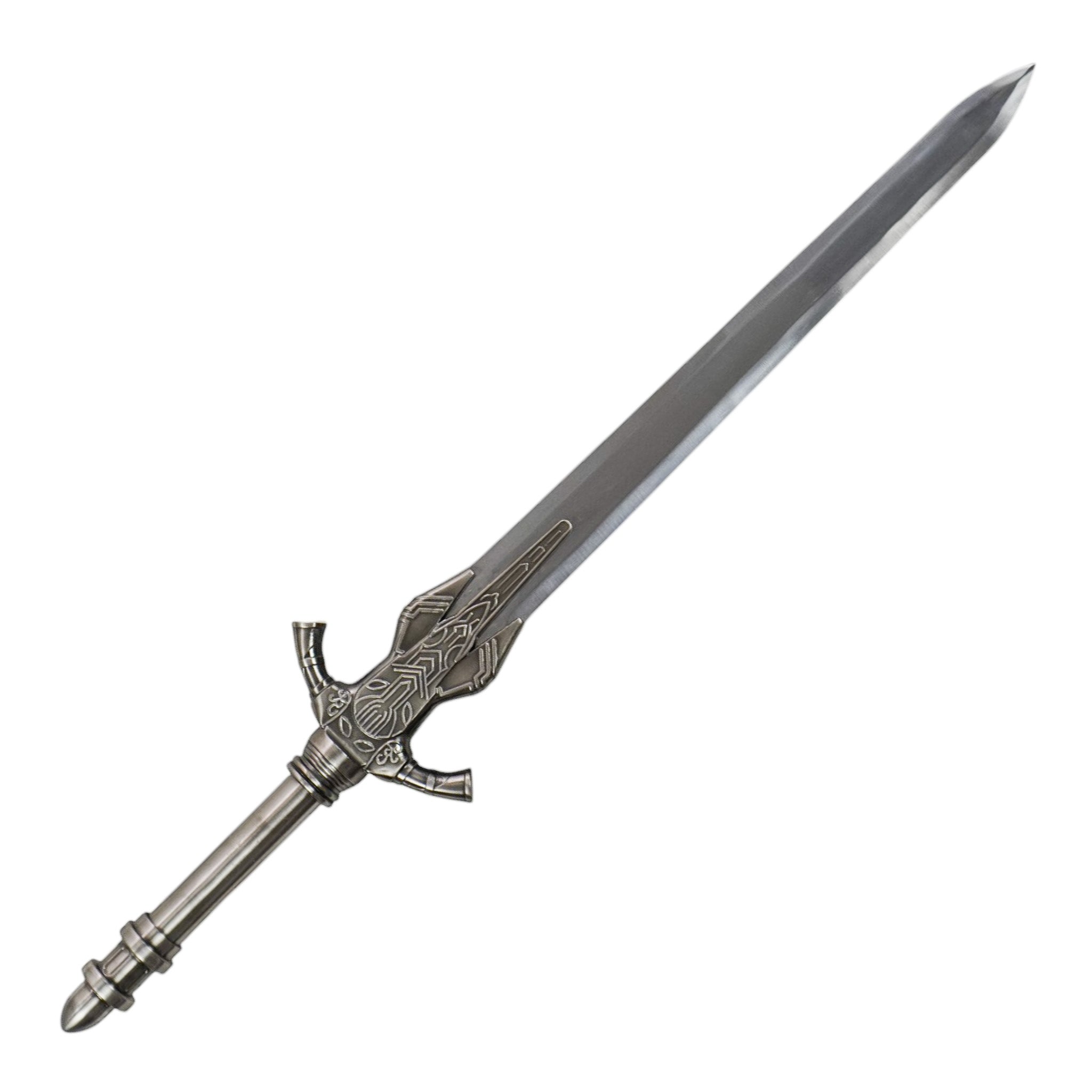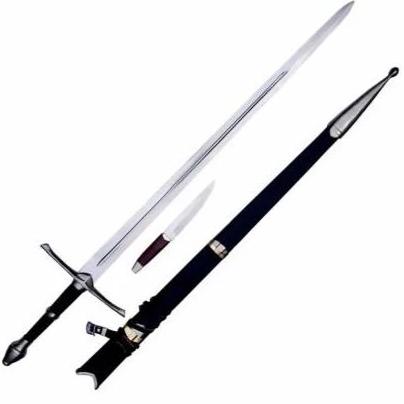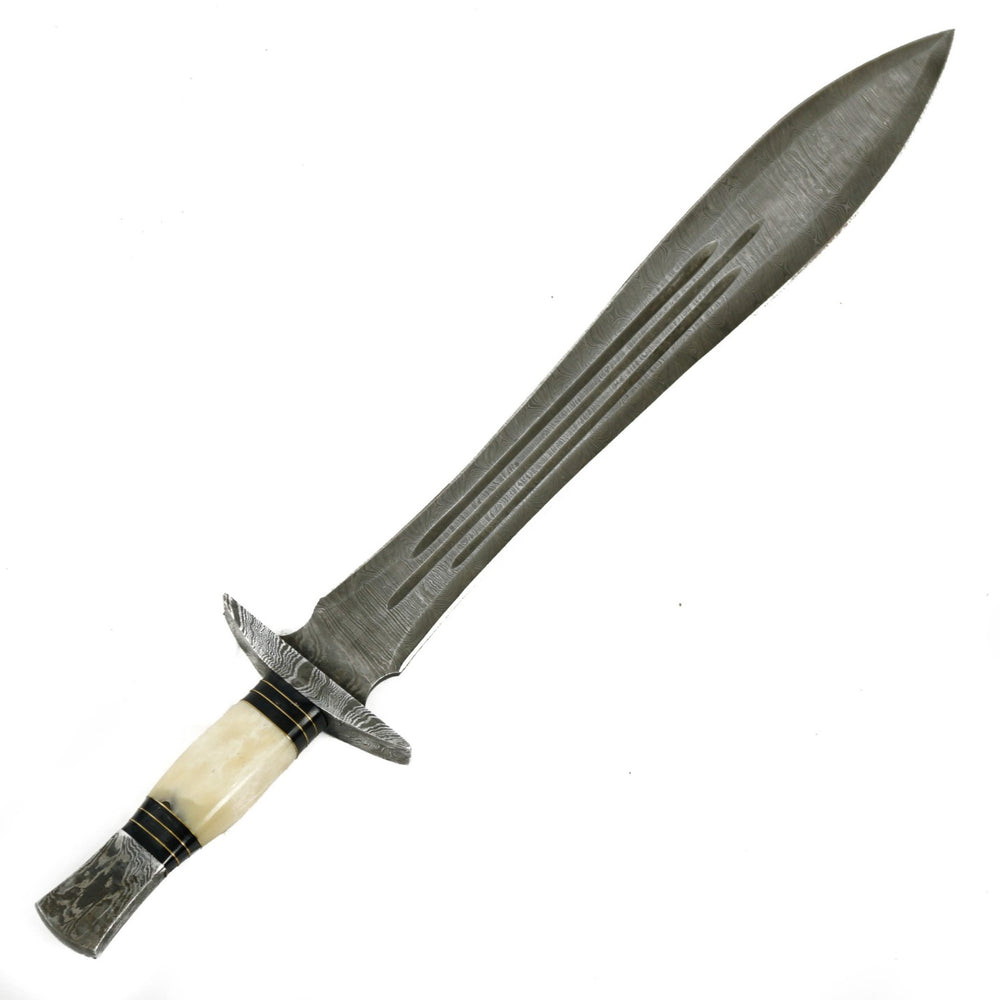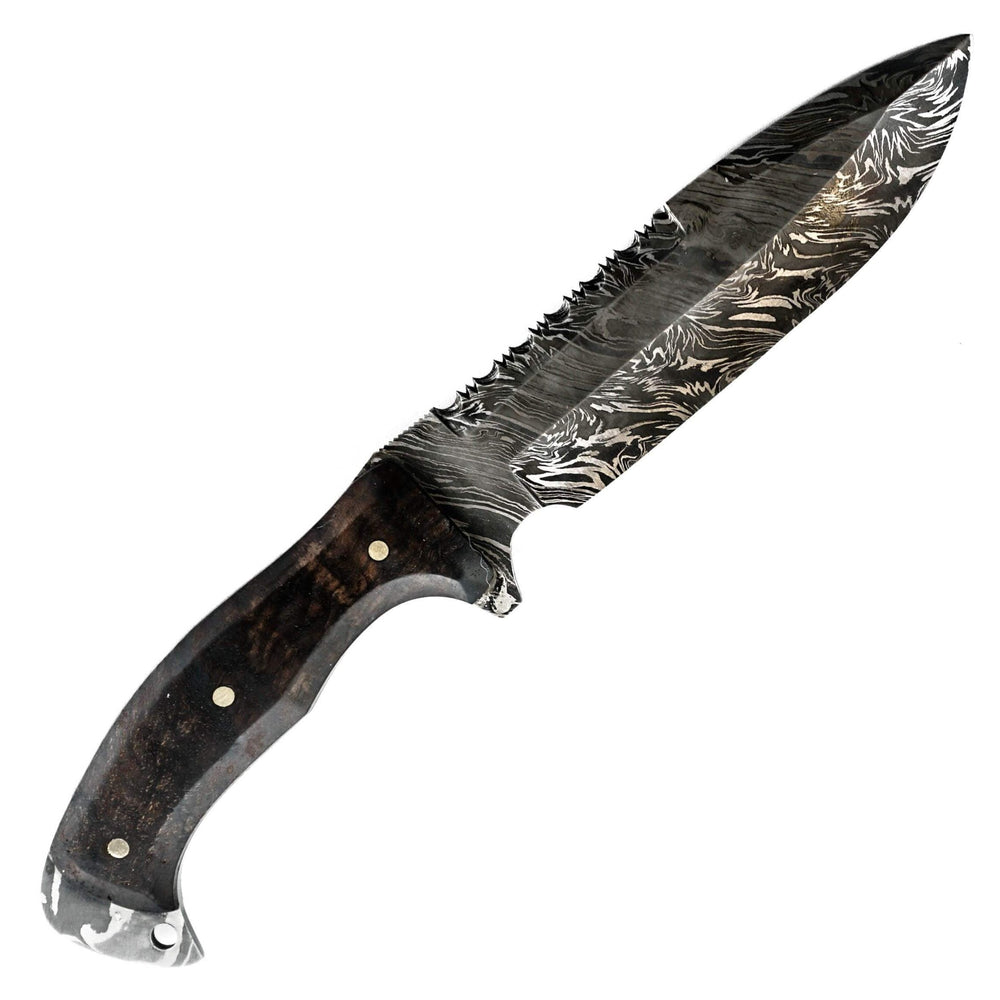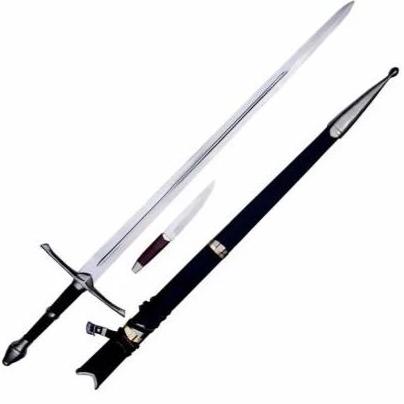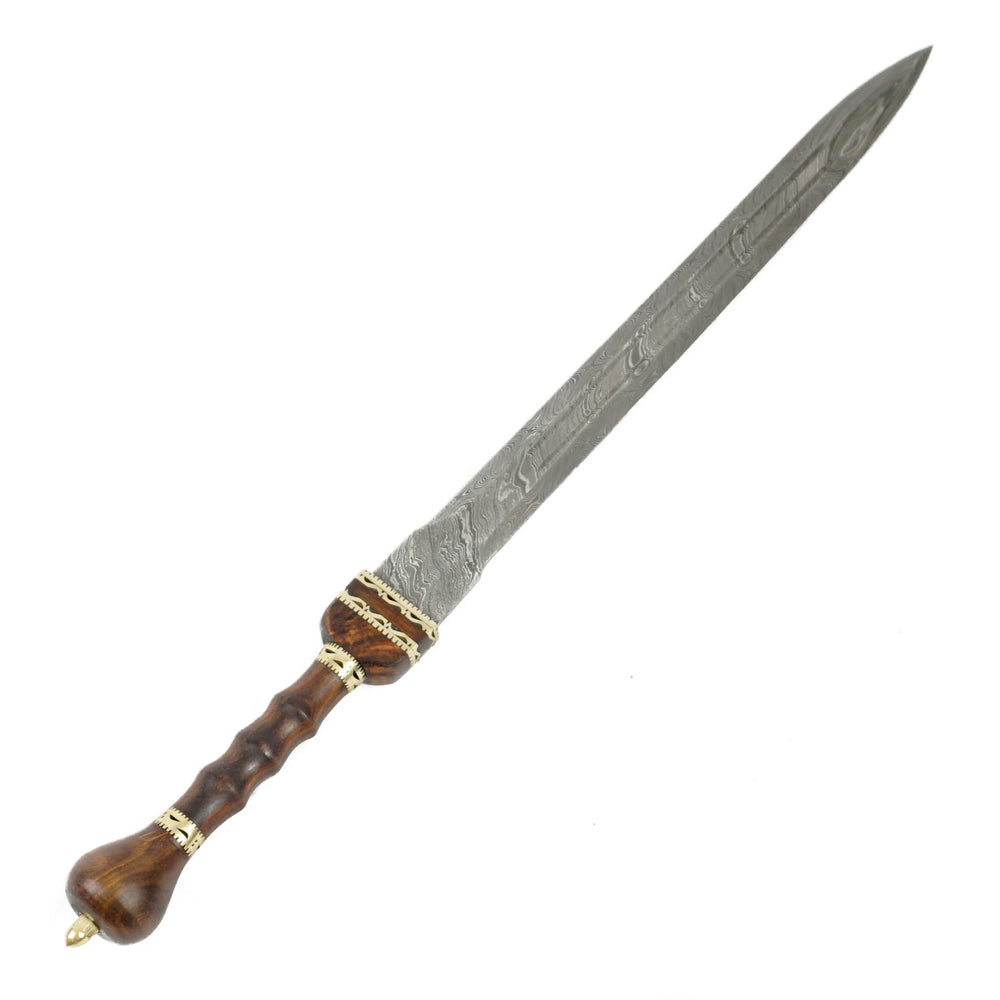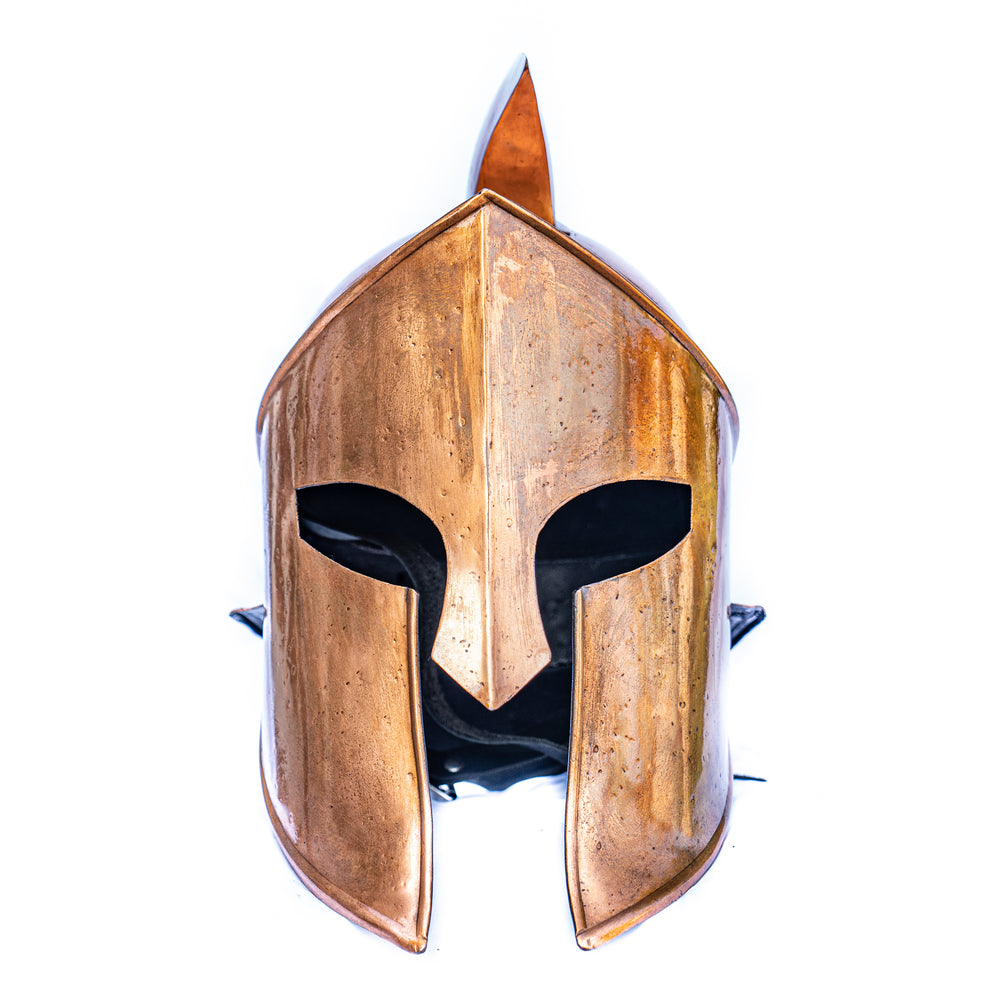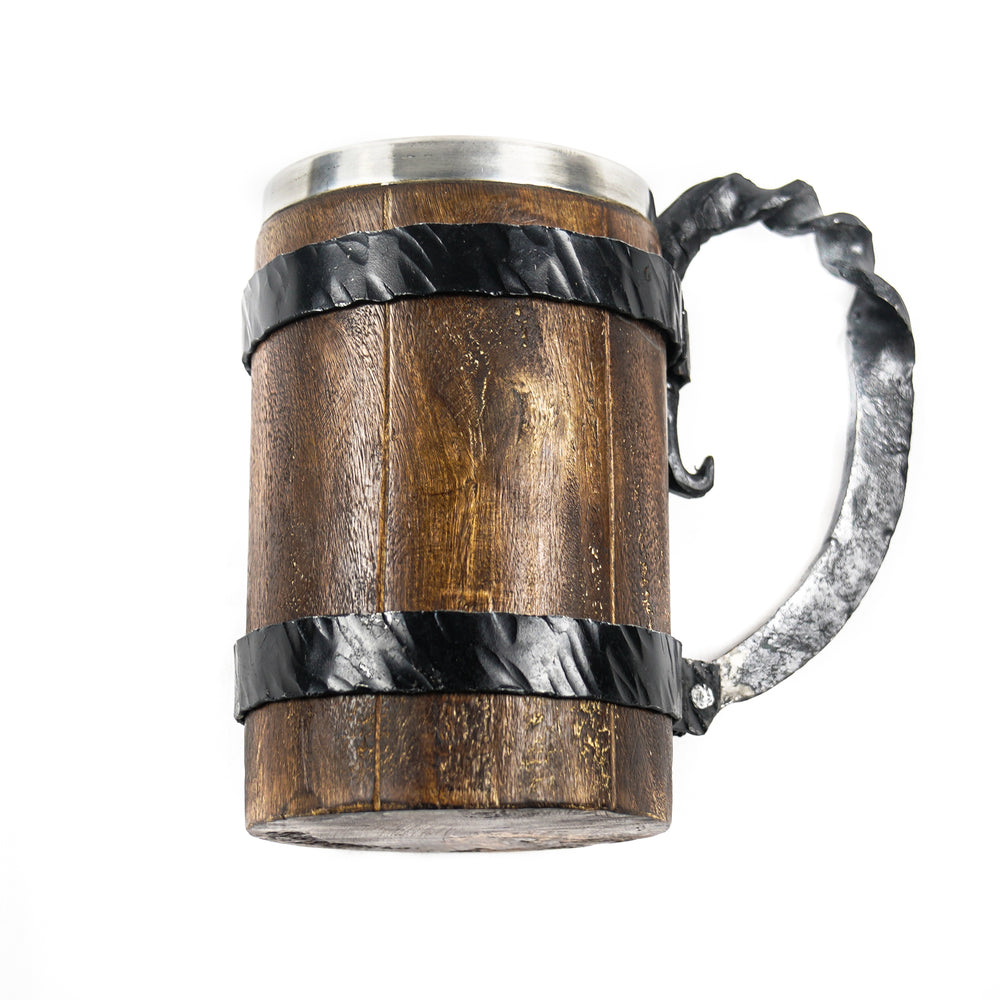Why Damascus steel Swords Shine: A Collector's Dream Guide
Where collectible swords are concerned, few names spark as much admiration and curiosity as Damascus steel. Famed for its unique patterns and legendary strength, Damascus steel swords have intrigued collectors, historians, and arms enthusiasts for centuries. So what makes these swords so prized? This guide explores the unique qualities of Damascus steel swords, why they continue to be in demand by collectors, and what to keep in mind when including one in a collection.
What is Damascus Steel?
Damascus steel is one of the varieties of steel recognized for its wavy, watery design on the blade's surface. These are not merely for appearance —they are the effects of a special process of forging various kinds of steel. The ancient process produces layers that provide the blade with both strength and flexibility.
Historically, authentic Damascus steel was produced in the Middle East, near the city of
Damascus, centuries ago. The early process, referred to as "wootz" steel, consisted of forging steel ingots brought in from India and Sri Lanka. These swords were valued for their sharpness, durability, and the capacity for an extended edge retention compared to many other metals of the day.
Although the original technique has been lost with time, current smiths employ pattern
welding methods to produce the appearance and behavior of Damascus steel. These days, Damascus steel swords carry on the tradition of the old blades, combining aesthetics and usability.
Why are Damascus Steel Swords Unique?
1. Beautiful and Unique Patterns
One of the first things that you notice on any Damascus steel sword is the blade pattern.
Every sword is unique, created by folding and layering steels in a forging process. No two
blades are identical, so every sword is an art form.
Collectors value these patterns both for their aesthetic appeal and because they representthe craftsmanship and attention to detail that was put into creating each blade.
2. Strength and Toughness
Damascus steel is tough. The layering structure distributes impact evenly, so the blade is
able to resist chipping or breaking more effectively than a lot of other steels. This makes the Damascus sword functional for use, whether in cutting demonstrations or traditional martial arts.
The sword's ability to stay sharp yet be flexible is an unusual combination that makes
Damascus steel extremely desirable.
3. Cultural and Historical Significance
Having a Damascus steel sword is similar to possessing a fragment of history. The swords link collectors to ancient sword-making traditions and the cultures that appreciated them. To many, collecting Damascus steel swords is a matter of preserving and honoring this heritage.
Collectors tend to look for swords that represent certain periods or cultures, adding to the meaning of their collection.
What Should Collectors Look For?
1. Authenticity
Due to the demand for Damascus steel, there are numerous swords labeled as Damascus
that fail to provide authentic quality. True Damascus steel involves pattern welding or
conventional techniques, providing real layers of steel.
Collectors should look for sellers who offer details regarding the forging process. Certificates or elaborate descriptions regarding the steel and craftsmanship are also useful in verifying authenticity.
2. Craftsmanship
The quality of a Damascus sword largely relies on the craftsmanship of its smith. Look for unblemished, clear patterns and fine transitions from blade to handle. Proper balance is also crucial, as well as the quality of the fittings.
Inspectors should examine the sword for any defects such as cracks or irregular edges, as these can determine its price and longevity.
3. Purpose of the Sword
Select whether the sword is to be for display, daily use, or practice in martial arts. Some
Damascus steel swords have been made specifically for decorative purposes, with fancy handles and complex engravings, but not for cutting or combat.
Others are fully functional and heat-treated for use. Knowing the purpose it was made for
assists in choosing the correct sword for the collection.
How to Care for a Damascus Steel Sword
Maintenance is necessary in order to protect the beauty and functionality of a Damascus
sword. Regular cleaning and oiling are required on these blades to prevent rust and
corrosion, especially since most Damascus swords consist of high-carbon steel.
Cleaning the blade with a clean cloth after use and using a light application of protective oil will keep the blade in like-new condition. Storing the sword in a dry setting and avoiding touching the blade with bare hands also keeps the blade in similar condition.
Conclusion
Damascus steel swords rank as one of the most valuable collectibles for sword collectors
worldwide. They stand out from other swords due to their unique patterns, strength, and
connection to historical sword-making. Buyers should search for authenticity, craftsmanship, and function when choosing a Damascus sword, and take measures to maintain their investment.
At BattlingBlades.com, we offer a wide variety of authentic Damascus steel swords crafted by skilled artisans who honor this legendary technique. Whether you're a seasoned collector or just starting out, Damascus steel swords are an excellent choice to add to any collection, melding history, beauty, and use into a single exquisite piece.

